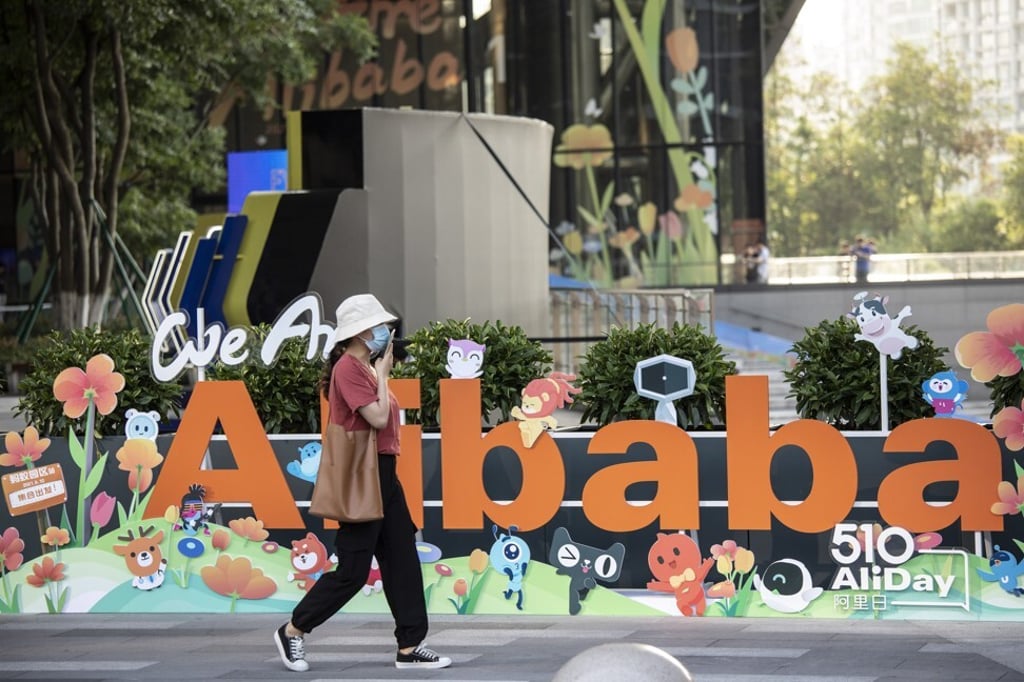Advertisement
Alibaba bites bullet in renewed push for growth amid antitrust climate, increased competition
- Alibaba will invest incremental profits in its new financial year into strategic areas, such as technology innovation and support for merchants
- Its renewed growth focus comes amid Beijing’s efforts to rein in the unchecked growth and influence of the country’s Big Tech companies
Reading Time:3 minutes
Why you can trust SCMP

Alibaba Group Holding will strengthen its engagement with consumers and merchants in the world’s largest e-commerce market, according to analysts, in an effort to put the company’s first quarterly loss in nine years behind after being slapped with a record fine by regulators for antitrust violations.
“The retail business of Alibaba, which is the country’s biggest [e-commerce] player, still maintains a high growth rate,” said Chen Tao, an analyst at internet research and consulting firm Analysys. “It will not be easily surpassed by others.”
The US$2.8 billion fine imposed against Alibaba by the State Administration for Market Regulation in April had no material impact on the company’s core advantages, including strong market recognition and advanced capabilities in matching consumers with products and merchants, according to Chen.
Advertisement
Alibaba, the parent company of the South China Morning Post, has promised to assist regulators in maintaining “market order”, while adhering to the country’s antitrust rules.

Advertisement
Some analysts said Alibaba still faces challenges ahead.
Advertisement
Select Voice
Choose your listening speed
Get through articles 2x faster
1.25x
250 WPM
Slow
Average
Fast
1.25x